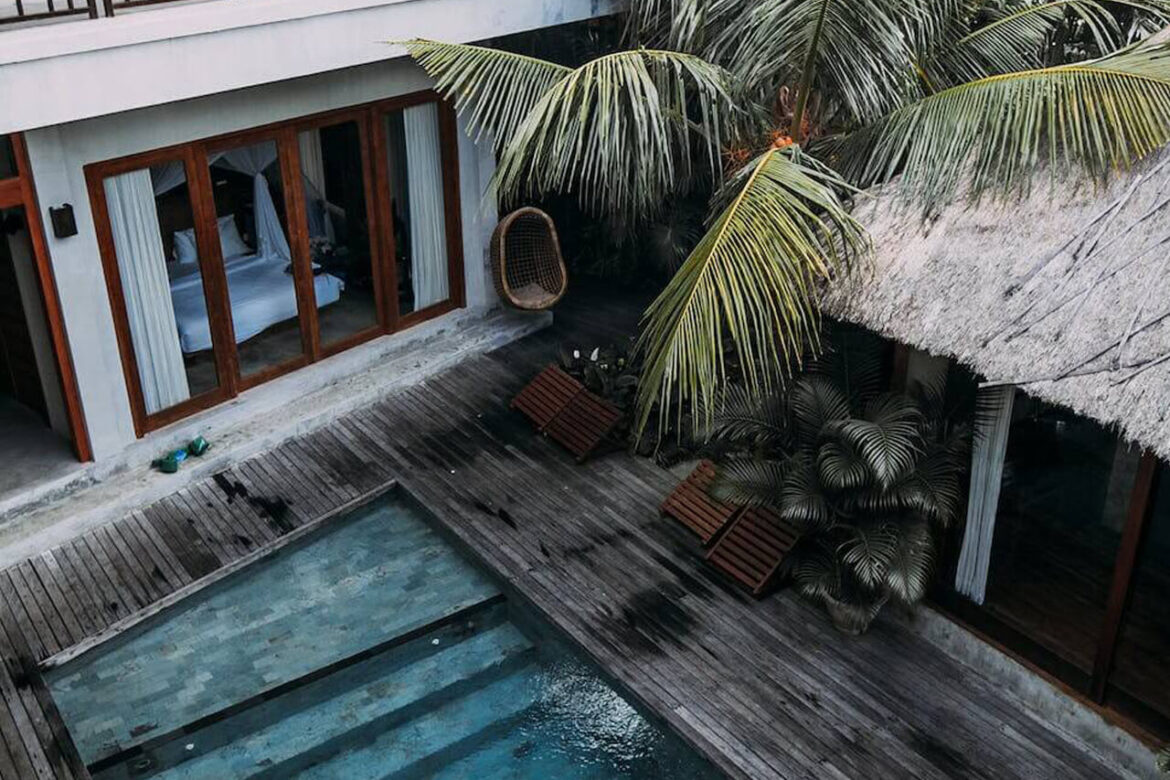Table of Contents
Summer is here, and if you’re like me, you’re spending most of your time lounging by the pool. But did you know that traditional swimming pools can have a negative impact on the environment? From the chemicals used to maintain the water to the energy needed to run the pump and heater, swimming pools can be a significant source of environmental waste.
However, there are many ways you can make your pool more eco-friendly. Here are ten tips to get you started:
Switch to a saltwater pool
Traditional swimming pools use harsh chemicals such as chlorine to sanitize the water. These chemicals can be harmful to the environment and can cause skin and eye irritation. In contrast, saltwater pools use a salt chlorine generator to produce chlorine naturally, eliminating the need for harsh chemicals. Saltwater pools are also gentler on the skin and eyes, making for a more comfortable swimming experience, so although it might be a bit unusual, it is definitely a good move to make if you really case about the environment and living your life in a more sustainable manner.
Use a solar pool cover
A solar pool cover is a simple and effective way to make your pool more eco-friendly. The cover traps in heat from the sun, which can help keep your pool warm and reduce the amount of energy needed to run your pool heater. A solar pool cover can also reduce water evaporation, which can save water and reduce the amount of chemicals needed to maintain the water.
Oh, and speaking of pool heaters, if you visit website here, you can buy a solar pool heater that will keep your pool just the right temperature for you by harnessing the power of the sun and turning it into energy in that way too. This is a good idea in combination with a solar pool clever, for inviting water every time without the guilt.
Install a variable-speed pump
A variable-speed pump is a more efficient option than a traditional pool pump. A variable speed pump can reduce the energy needed to run your pool pump by up to 80%, which can save you money on your energy bill and reduce your carbon footprint. In addition, variable speed pumps are quieter and last longer than traditional pumps, so there really is no downside to purchasing one – the initial cost might seem off putting but when you think about how much energy it will save you, then it’s easy to see how it will pay for itself in no time at all.

Use a pool cover
If you do not have a solar pool cover, a standard pool cover can provide several benefits for your pool. For one thing, it can reduce water evaporation, which can save water and reduce the amount of chemicals needed to maintain the water. A pool cover can also keep debris out of the pool, which can reduce the amount of energy needed to run the pool filter. In addition, a pool cover can help keep your pool warm, reducing the amount of energy needed to run your pool heater. Just remember to actually use that pool cover whenever you are not in the water or it will not be able to do its thing for you!
Use eco-friendly pool chemicals
Traditional pool chemicals such as chlorine can be harmful to the environment and can cause skin and eye irritation for anyone who used the pool too. Fortunately, there are many eco-friendly pool chemicals on the market that are gentler on the environment. Look for products that are biodegradable and free from harsh chemicals because these are likely to have the least impact on the planet, and the people who use the pool too!
Plant trees and shrubs around your pool
Planting trees and shrubs around your pool can provide several benefits. Trees and shrubs can provide shade, which can help keep your pool cooler and reduce the amount of energy needed to run your pool heater, especially at cooler times of year. Trees and shrubs can also absorb carbon dioxide and provide a natural barrier against wind and debris. Not only that, but of course, if you plant trees and shrubs aroun d the pool, they will afford you a lot more privacy and muffle sounds from the road and neighbors, for a more pleasant swimming experience.
Install energy-efficient lighting
Traditional pool lighting can be energy-intensive and expensive to run. Energy-efficient LED lighting is a more eco-friendly option that can reduce the amount of energy needed to light your pool at night. LED lights are also longer-lasting and can save you money on your energy bill.
Use a pool vacuum that runs on solar power
A pool vacuum that runs on solar power is an eco-friendly option that can reduce the amount of energy needed to clean your pool. Solar-powered pool vacuums are also quieter and more eco-friendly than traditional pool vacuums.
Use a natural pool filtration system
A natural pool filtration system uses plants and bacteria to clean the water, eliminating the need for chemicals. Natural pool filtration systems are more eco-friendly and can provide a more natural swimming experience. However, natural pool filtration systems can be more expensive to install than traditional pool filtration systems.
Reduce water usage
Reducing water usage is an important part of making your pool more eco-friendly right now. You can reduce water usage by fixing leaks, using a pool cover, and limiting the amount of time you run your pool pump. In addition, consider installing a water-saving device such as a low-flow showerhead or toilet to further reduce your water usage.
As you can see, there are many ways you can make your pool more eco-friendly. From switching to a saltwater pool to using energy-efficient lighting, these tips can help reduce your carbon footprint and save you money on your energy bill. So, the next time you’re lounging by the pool, take a moment to consider how you can make your pool more eco-friendly. Happy swimming!
